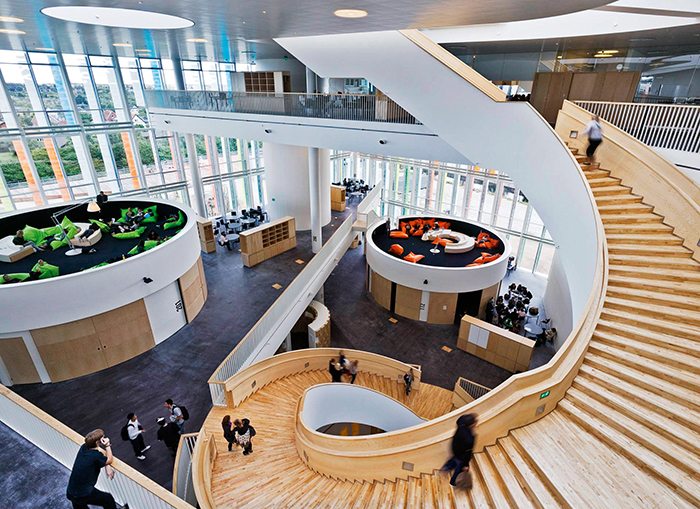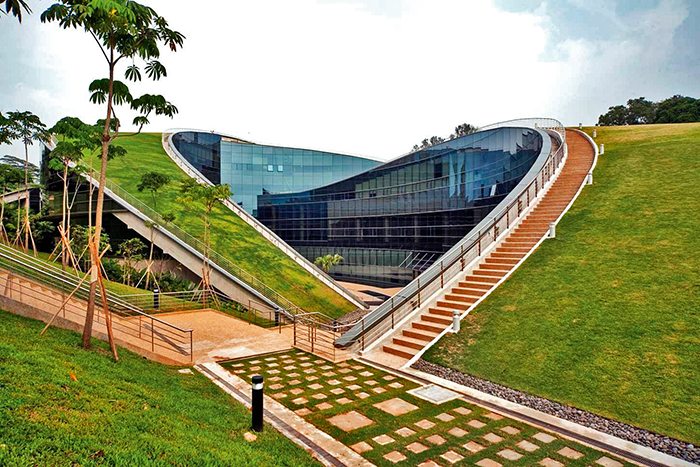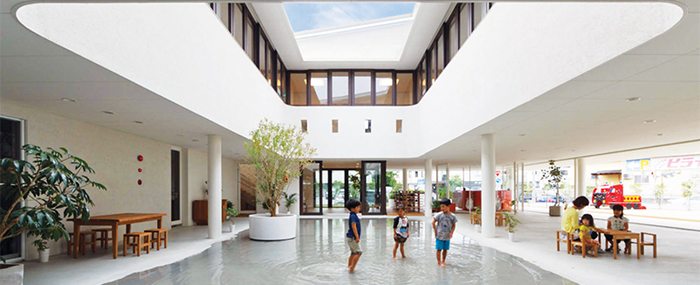The education world is rapidly changing as schools and tertiary institutions deal with the democratisation of knowledge, increasing access to information through digital technologies and the global mobility of the population, as well as how learning takes place across different stages of life.
With change comes the need for the institutions that educate us to adapt. Here, leading practitioners talk about the shifting face of the education industry and how they are also changing.
GLOBAL CITIZENS
The universities that we know will be unrecognisable in 10 to 15 years. Higher education institutions will need to fundamentally transform their business models to survive, according to an Ernst & Young industry-wide study of the tertiary education sector.
One of the major changes for universities is in the way they educate. No longer is it enough to teach students their course curriculum without any context of how it fits in the wider world.
Now, it falls upon a tertiary institution to educate global citizens so they are ready for the diverse range of challenges our modern world presents.
“I have seen the importance of education and the power of education
to transform individuals and their communities,” Stefanie Rixecker,
deputy vice-chancellor at Lincoln University, says of the important role
of teaching in our society.
“Educating an individual means that education often goes back to their community and what they learn transfers to others, be it their children or into their work.” Rixecker explains that many people see universities as a provider of a job for a student and nothing else. She says, of course, it is about employment and an investment in education for employment.
“But the other part of it is just as significant,” she says. “Very often these students can be straight out of school, so they are growing up and maturing as well as becoming citizens within their own environment – in a local or national context. They are also discovering the world around them.”
Students now need to be taught not just the skills of their job but – crucially – how those jobs will make a difference to the future of their local communities as well as regional and national governments. This, of course, also matters to modern companies.
Rixecker says Lincoln, alongside other institutions such as Berkeley University in California, is aware of the need to educate global citizens. “It is getting students to understand their own impact on the world around them, whether that be about ethics, or the ethics of relationships with people in a company setting, relationships with indigenous people or the different world views that different people in different settings have.
“It is teaching students they are citizens who make decisions every day as consumers – whether they drive a car, what goods they purchase, who they interact with, or who they give to as a charity,” she adds.
Rixecker says education must also take into account the global issues we all face, whether we live in a village or a large global city.

A DIFFERENT TYPE OF ACCESS
There are several fundamental ways in which education and our desire for knowledge has changed in recent years. According to the Ernst & Young report, they include the democratisation of knowledge and access to it.
There is a mass of information available online and university education is now available to a much wider audience with the increase of tertiary education institutions in developing countries. Other shifts include global mobility – students choosing to move around the world to study, not only increasing competition between universities but also creating opportunities for much deeper global partnerships and broader access to student and academic talent.
That naturally leads to greater integration with industry – universities will need to build significantly deeper relationships with corporations in the decade ahead to support research but also to reinforce their position as the drivers of innovation and growth.
NO MORE “STAND AND DELIVER”
Digital technology has changed the world we live in, from media to retail, to entertainment and health. Education is no different. Yes, campuses might remain but digital technologies have, and will continue to, transform the way education is delivered and accessed.
Online education has been around since the 1990s but it is really only in the past five years that the change has disrupted the status quo.
Damian Lodge, Lincoln University’s director of library, teaching and learning, says universities are moving away from the “stand and deliver” learning environment to a more active scenario where students are able to give real-time feedback and responses.
Now, students might access information before class and then come to class not to be lectured to, but to debate issues they’re already aware of.
“Academics now walk around a class, get people working in groups, instead of a one-way teaching model,” Lodge says.
It goes beyond the learning environment to modern technology changing how students can present an idea to their tutors and peers. It also changes the very way in which we learn.
“We are trying to get a far more engaged learner and technology helps with that,” Lodge says. “Research shows the more engaged a person is, the better they will do in class.”
Lodge says universities are investing in upgrading their digital environments rather than on bricks-and-mortar changes. There is also a growing number of distance education students –
those who learn exclusively online without vsiting a campus. It is a lifeline to people in smaller or remote communities.
“Students readily grab hold of technology. Universities have to keep
up,” Lodge says.

PROFESSIONAL DEVELOPMENT
Learning now happens throughout life in a more structured way and those who have continued professional development will be ahead of the curve, says Anne Hindson, New Zealand’s general manager for the Kellogg Rural Leadership Programme, which runs professional development for the rural and primary industry sectors.
It’s about understanding your leadership style and being able to adapt when presented with a different one. It is also about understanding what is happening in your industry in New Zealand and around the world.
“We are going to need leaders who can think differently, who can think critically and come up with solutions,” Hindson says.
Shannon Page, a lecturer in the faculty of Environment, Society and Design, says the “real world” beyond study at an institution is often confronting for people who are not prepared to encounter others from different backgrounds and disciplines.
Lincoln University runs a compulsory course, known as LINC 101. In essence, it is designed to expand the minds of its students: it makes students deal with people who have different world views.
“After the course they will have actually encountered different perspectives on big issues and they will see how different people from different backgrounds see the issues that they will encounter,” explains Page.

LINC 101 students discuss real-world problems. “There are big global challenges – climate change, food production, food security, population growth and limited resources – and the huge conflicts that are coming up with them. Even issues such as where do we house people in our cities, and cities competing with farmers for land space – there are really big challenges just around the corner.”
Page says they decided to put “all of the students in one room” so they had to work with people from other disciplines and backgrounds.
Rixecker says the approach sets students up well for professional life after university. “In the past, education institutions have trained students in siloed areas and then we become surprised when we have conflicts between different areas, say between agriculturalists and the so-called greenies.
“It’s because we haven’t mixed and mingled the different views. A significant part of working through challenges, local to global, is actually understanding how other people view the problem and building relationships.
“That is fundamentally about resilience. Because to be a resilient individual you have to understand difference; you have to understand robust argument and debate and you need to be able to find some common ground if you want to actually resolve a problem.
“We have restructured our qualifications so students have to face each other no matter where they come from or what discipline they are actually engaging in. So they can start thinking about the problems and realise they are going to have to start thinking about this outside of the university context.”
FROM NEAR AND FAR
Distance learning is becoming increasingly popular as technology allows people to engage in formal learning without being physically in the same building as the teacher or their fellow students, says Martin Eadie from Lincoln University’s Telford division.
“For people who haven’t been to university straight after school, it allows them the option of starting down a pathway without completely changing their life. People are becoming more and more web enabled.
“It’s giving students the picture and getting them to ask – where do I fit in, in this world? What part do I play? And how does that contribute to the wider environment in which we find ourselves?”

STARTING FROM AN EARLY AGE
At the other end of the learning spectrum, education is changing, too. Early childcare is now about letting children develop their own self worth, Sue Stevely-Cole, the owner of Bear Park childcare, says.
Stevely-Cole is an experienced practitioner, and oversees 10 branches of Bear Park nationwide. She is an enthusiastic proponent of the Reggio Emilia Approach – an educational philosophy that follows the belief that children develop their own personality during the early years of development and can express their ideas in a number of ways, whether it be through painting, sculpture or drama.
Stevely-Cole explains Bear Park’s adaptation of the approach as a philosophy centred on the child. That is, viewing the child as being very capable right from birth and that they come with their own ability to tell their own stories.
“We have three protagonists: the teachers, the parent and the child. They make up the whole framework of our daily routine.”
And, she says, “because you have
that strong image of the child and you value them for who they are you are setting them up to be lifelong learners. They are developing their own self
worth, their own self-esteem. It sits
in beautifully with the educational curriculum we have here in New
Zealand for early childhood.”
Stevely-Cole says children have
an “awful lot to offer and if we just
give them the time and the space it’s
very productive.
“Self worth, self esteem and being strong in their abilities to communicate their ideas and sharing their ideas and collaborating with others is really important.”
BUILDING ON THE BASICS
Secondary schools find themselves
with a different kind of challenge, often battling with the need to innovate but also to keep tradition alive.
Philip Coombe, the director of studies at Auckland’s King’s College, says the school is “very much about keeping traditions and practices we know work for students and then innovating to make sure we are relevant in society”.
Innovation includes the use of new technology and in the way they prepare students for a rapidly changing world when they leave school.
“I’m a great believer that students form an identity through subjects but I think – more and more – the process is much more a part of the content now than it used to be.
“You might have to rote learn some things but you also need to be able to express increasingly complex ideas in different forms – maybe visual, spoken or written. A global outlook is much more part of the mix now, rather than just studying something in isolation.
“Although getting good marks is important, that has to be in a much wider context.” Coombe says he believes, more than ever, schools have to be able to adapt.
“The nature of schools will change as they adapt to many more external issues.” Technology is one area that schools have embraced. They are often seen as leading the way. Coombe says at King’s there have been elements that have changed and elements that have stayed the same. “They can look the same but practices are often quite different. For instance, if you walk into the lower level of our technology block, the whole thing is totally open plan. We have tables that look like you are in a cafeteria.
“There is a lot more collaboration, there is a lot more cross-disciplinary knowledge applied, there is obviously a lot heavier use of information literacy. Classrooms are much more student-centred.” As Coombe puts it, all of this means students now “own the lessons a lot more”.







